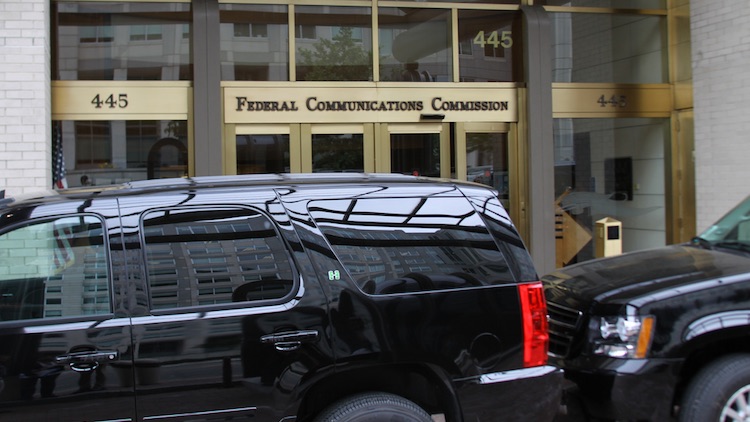Democrat FCC Bill Targets 'Fake News' Retaliation

The smarter way to stay on top of broadcasting and cable industry. Sign up below
You are now subscribed
Your newsletter sign-up was successful
House Democrats have released a suite of "connectivity" billsWednesday that would, among other things, prevent the FCC from targeting broadcasters "or anyone else" on the basis of viewpoint, toughen FCC political ad disclosure rules, and boost broadcast diversity.
The fact that they are Democratic bills in a Congress and Administration controlled by Republicans means that they are primarily markers on key issues to the Democrats rather than legislation likely to see the President's desk.
The Protecting Dissenting Viewpoints and Voices Act, introduced by Rep. Ben Jay Luján (D-N.M.), stems from FCC chairman Ajit Pai's decision not to weigh in on President Donald Trump's branding of news outlets as "fake news" and in the shadow of the President's ongoing threats, or perceived threats, including invoking potential changes in libel laws or, as a candidate, suggesting his Administration should bock a deal involving Time Warner, which owns one of his main targets, CNN.
The bill would prevent the FCC from revoking any license, denying a license transfer, or taking action against an individual for their viewpoints on issues of public importance.
The FCC used to put an affirmative obligation on broadcasters to air dissenting viewpoints on issues of public importance, the Fairness Doctrine. That doctrine no longer applies, though some Democrats once talked about reviving it as a way to counter Republican-backing conservative talk radio.
The bill would also prevent the President from directing an agency from retaliating over a broadcast viewpoint.
“I am troubled by President Trump’s recent assertion that a free and independent press are America’s enemies. I am also troubled that when asked if he believed mainstream journalistic institutions are ‘fake news,’ Chairman Pai has declined to take a position,” said Luján of the bill. “The FCC is an agency that plays a pivotal role in the licensing of entities that provide news and information—an agency that was established to be independent of White House control. Our legislation is essential to ensure American media outlets are protected from government reprisals based on their points of view.”
The smarter way to stay on top of broadcasting and cable industry. Sign up below
Pai has said he would not get into the fake news debate, including by not providing his personal view of news outlets, though he did say generally that the media are not the enemy of the people, which the President has said.
Another in the package of five bills is the "Keeping Our Campaigns Honest (KOCH) Act," whose name is a reference to the Koch brothers, who are big Republican donors.
The bill was introduced by Reps. John Yarmuth (D-Ky.), Peter Welch (D-VT) and Luján and would "direct the FCC to revise its sponsorship identification rules to require that the true identity of individuals behind anonymous campaign ads be disclosed."
Those three reps have long pushed for FCC disclosure rules that require the identification of the funders of political advertising. Currently the FCC only requires identifying the officers of the group actually buying the ad, which could be a PAC on the order of Americans for a More American America.
“The KOCH Act will help ensure that the American people receive some level of honesty when it comes to identifying the individuals and groups that are trying to influence their vote,” said Yarmuth, Welch and Luján in a joint statement. “If special interests are allowed to continue spending hundreds of millions of dollars to impact our elections and our democracy, they should at least be required to let voters know who they are.”
The Expanding Broadcast Ownership Opportunities Act, introduced by Rep. G.K. Butterfield (D-N.C.) would boost data and reporting requirements for ownership diversity, restore the tax certificate program and establish a minority incubator program (see separate story).
The other bills are the Connected Government Act, which would require government websites to be optimized for mobile, and the Family Telephone Connection Protection Act, which would require the FCC to regulate prison phone rates.
Contributing editor John Eggerton has been an editor and/or writer on media regulation, legislation and policy for over four decades, including covering the FCC, FTC, Congress, the major media trade associations, and the federal courts. In addition to Multichannel News and Broadcasting + Cable, his work has appeared in Radio World, TV Technology, TV Fax, This Week in Consumer Electronics, Variety and the Encyclopedia Britannica.

